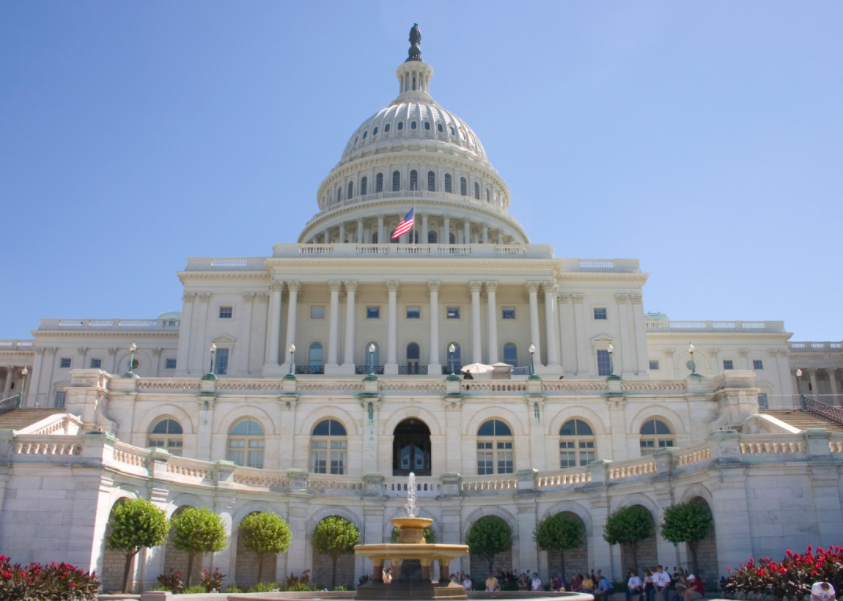
States with the most money in politics
States with the most money in politics
Politics on a state-by-state level is intriguing, given that so many different factors influence how people vote in a particular state. States with voters who heavily contribute to politics tend to be more controversial and often make for political battlegrounds.
What's particularly interesting to note is that some states invest heavily in one party at the state level but support the opposite one regarding national politics. Another point of interest is that most people contributing to politics in the majority of states are retired. Perhaps most importantly, the data listed here can provide an overall impression of how each state may vote in the upcoming presidential election.
To find the states with the most money in politics, Stacker consulted two data sources over the 2019–2020 election cycle. Open Secrets data from August 2020 was used to find each state's contribution to national races. Data from the National Institute on Money in Politics was used to find each state's contribution to local and statewide races. While state and local data are exhaustive, due to differences in disclosure and contribution requirements between states and localities, it is not conclusive. Identifiers such as party affiliation may also be missing.
Data points are defined below:
- Average contribution per eligible voter is the total national and state contributions combined divided by the number of eligible voters in each state. The number of eligible voters per state was found using Census Bureau data from 2018. This data point also ranks states.
- Open Secrets define total national race contributions as including PAC contributions to candidates, individual contributions ($200+) to candidates and parties, Levin Fund contributions to parties, and soft money contributions to outside groups, but not including individual contributions to PACs. As a result, some contributions may be double-counted due to overlap or not counted due to missing identifiers.
- Soft money contributions are contributions to a prevailing party or committee where the purpose is not to promote a specific candidate. Soft money contributions are outside the requirements of campaign finance law and can be unlimited.
- The total state contributions statistic is calculated based on the disclosure requirements of each state. This represents the amount of money given by citizens of that state to state/local elections anywhere in the country.
- The total money within state/local elections is the total amount of money used in that state's local and state races, subject to each state's disclosure requirements.
Wondering where your state ranks? Click through to find out which states have the most money in politics.

#50. Alabama
- Average contribution per eligible voter: $11.82 (3,609,000 eligible voters)
- Total contributions: $42.7 million
National race statistics:
- Total contributions: $35.9 million (#29 in the nation)
- Total to candidate/party: $35.2 million
--- Total to Democrats: $8.7 million (24.9% of total)
--- Total to Republicans: $25.3 million (72.1% of total)
- PAC contributions: $2.4 million
- Soft money contributions: $1.8 million
- Top industries of contributors:
--- #1 Industry: Retired ($6.9 million)
--- #2 Industry: Real Estate ($2.6 million)
--- #3 Industry: Lawyers/Law Firms ($1.3 million)
State/local race statistics:
- Total state contributions: $6.8 million (#38 in the nation)
--- Total to Democrats: $399.5 thousand
--- Total to Republicans: $3.4 million
- Total money within state/local elections: $2.9 million (#39 in the nation)
--- Total to Democrats: $101.2 thousand
--- Total to Republicans: $2.8 million
Alabama’s state Senate is expected to flip during the next election from incumbent Democratic Senator Doug Jones to Republican Tommy Tuberville (supported by President Donald Trump). Jones hopes to secure the Black vote in Alabama and remain in his current position.
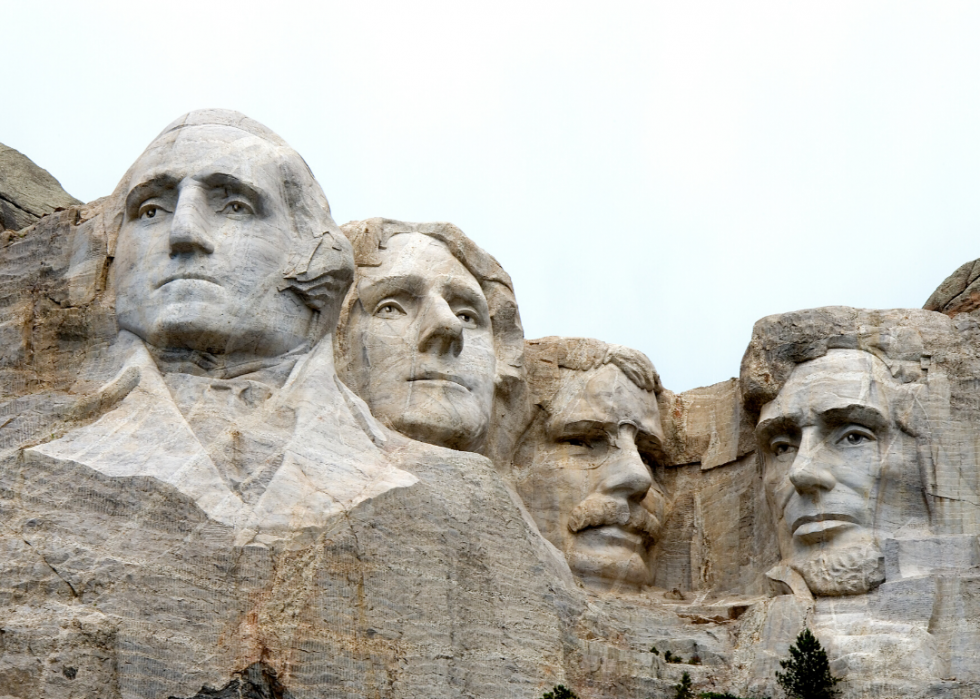
#49. South Dakota
- Average contribution per eligible voter: $13.30 (637,000 eligible voters)
- Total contributions: $8.5 million
National race statistics:
- Total contributions: $7.2 million (#48 in the nation)
- Total to candidate/party: $7.0 million
--- Total to Democrats: $1.9 million (26.7% of total)
--- Total to Republicans: $5.0 million (71.5% of total)
- PAC contributions: $870.3 thousand
- Soft money contributions: $341.4 thousand
- Top industries of contributors:
--- #1 Industry: Retired ($1.7 million)
--- #2 Industry: Leadership PACs ($573.0 thousand)
--- #3 Industry: Misc Energy ($413.4 thousand)
State/local race statistics:
- Total state contributions: $1.3 million (#49 in the nation)
--- Total to Democrats: $38.5 thousand
--- Total to Republicans: $448.9 thousand
- Total money within state/local elections: $399.9 thousand (#49 in the nation)
--- Total to Democrats: $11.5 thousand
--- Total to Republicans: $388.4 thousand
In May of 2015, Super PACs in South Dakota were prohibited by law from making donations to candidates. Additionally, corporations and unions are not allowed to contribute to politics in South Dakota.

#48. Idaho
- Average contribution per eligible voter: $13.42 (1,226,000 eligible voters)
- Total contributions: $16.5 million
National race statistics:
- Total contributions: $12.1 million (#42 in the nation)
- Total to candidate/party: $11.9 million
--- Total to Democrats: $5.2 million (43.5% of total)
--- Total to Republicans: $6.5 million (54.8% of total)
- PAC contributions: $689.3 thousand
- Soft money contributions: $1.3 million
- Top industries of contributors:
--- #1 Industry: Retired ($3.7 million)
--- #2 Industry: Livestock ($1.2 million)
--- #3 Industry: Real Estate ($741.6 thousand)
State/local race statistics:
- Total state contributions: $4.4 million (#43 in the nation)
--- Total to Democrats: $826.7 thousand
--- Total to Republicans: $2.2 million
- Total money within state/local elections: $3.4 million (#38 in the nation)
--- Total to Democrats: $869.6 thousand
--- Total to Republicans: $2.4 million
Corporations, unions, and individuals can all contribute to politics in Idaho, but all three are limited. Contributions to statewide candidates cannot exceed $5,000, with a cap of $1,000 for state Senate and no more than $1,000 to assembly candidates.

#47. South Carolina
- Average contribution per eligible voter: $13.68 (3,769,000 eligible voters)
- Total contributions: $51.6 million
National race statistics:
- Total contributions: $35.7 million (#30 in the nation)
- Total to candidate/party: $35.3 million
--- Total to Democrats: $16.5 million (46.7% of total)
--- Total to Republicans: $18.4 million (52.2% of total)
- PAC contributions: $953.7 thousand
- Soft money contributions: $879.5 thousand
- Top industries of contributors:
--- #1 Industry: Retired ($9.6 million)
--- #2 Industry: Lawyers/Law Firms ($2.5 million)
--- #3 Industry: Real Estate ($1.3 million)
State/local race statistics:
- Total state contributions: $15.8 million (#26 in the nation)
--- Total to Democrats: $4.2 million
--- Total to Republicans: $10.4 million
- Total money within state/local elections: $15.1 million (#21 in the nation)
--- Total to Democrats: $4.5 million
--- Total to Republicans: $10.5 million
Current state Sen. Lindsey Graham may be unseated in the upcoming election by Democratic candidate Jaime Harrison. South Carolina hasn’t voted Democrat since 1976, but the Senate race could go either way this year, with democrats heavily funding Harrison’s campaign.

#46. Nebraska
- Average contribution per eligible voter: $14.19 (1,332,000 eligible voters)
- Total contributions: $18.9 million
National race statistics:
- Total contributions: $14.8 million (#41 in the nation)
- Total to candidate/party: $13.9 million
--- Total to Democrats: $5.5 million (39.9% of total)
--- Total to Republicans: $8.1 million (58.4% of total)
- PAC contributions: $641.9 thousand
- Soft money contributions: $1.2 million
- Top industries of contributors:
--- #1 Industry: Retired ($4.1 million)
--- #2 Industry: Education ($664.7 thousand)
--- #3 Industry: Crop Production & Basic Processing ($493.2 thousand)
State/local race statistics:
- Total state contributions: $4.1 million (#45 in the nation)
--- Total to Democrats: $185.6 thousand
--- Total to Republicans: $212.6 thousand
- Total money within state/local elections: $4.5 million (#36 in the nation)
--- Total to Democrats: $56.9 thousand
--- Total to Republicans: $1.1 thousand
At the national level, Nebraska voters contribute more to Republicans, but things change on the state level, with Democrats obtaining more donations than Republicans. Nebraska has no limits set on the amount of donations individuals, unions, and corporations can contribute to politics at any level.
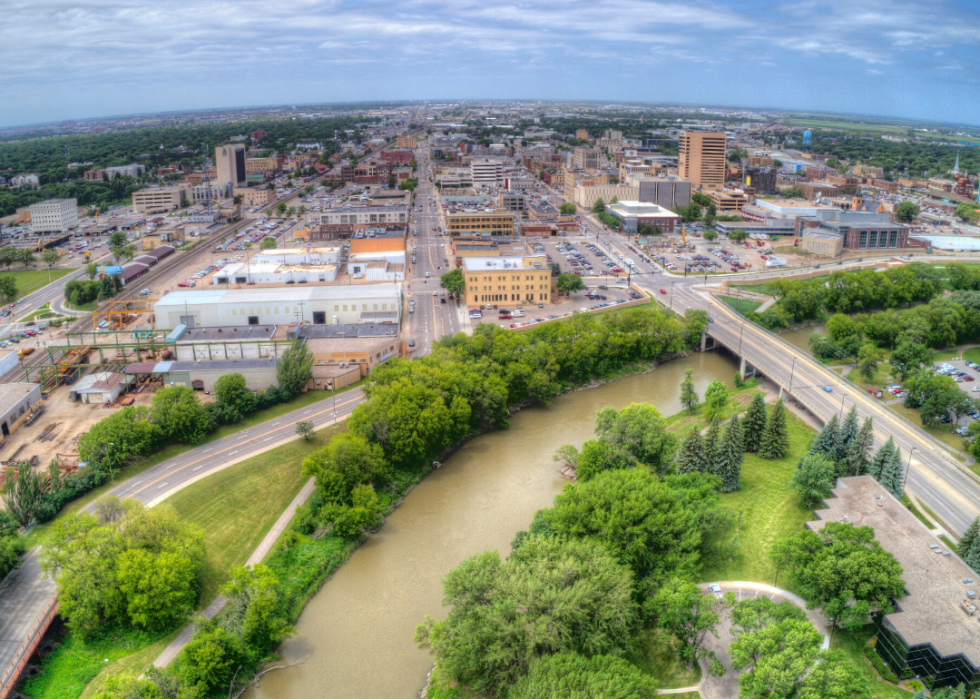
#45. North Dakota
- Average contribution per eligible voter: $14.55 (541,000 eligible voters)
- Total contributions: $7.9 million
National race statistics:
- Total contributions: $6.8 million (#49 in the nation)
- Total to candidate/party: $4.7 million
--- Total to Democrats: $1.3 million (28.1% of total)
--- Total to Republicans: $3.3 million (69.3% of total)
- PAC contributions: $481.5 thousand
- Soft money contributions: $2.2 million
- Top industries of contributors:
--- #1 Industry: Electronics Mfg & Equip ($1.8 million)
--- #2 Industry: Retired ($958.3 thousand)
--- #3 Industry: Retail Sales ($519.3 thousand)
State/local race statistics:
- Total state contributions: $1.1 million (#50 in the nation)
--- Total to Democrats: $46.1 thousand
--- Total to Republicans: $424.0 thousand
- Total money within state/local elections: $830.0 thousand (#48 in the nation)
--- Total to Democrats: $54.2 thousand
--- Total to Republicans: $733.7 thousand
North Dakota’s Gov. Doug Burgum (a former tech mogul) has donated almost $900,000 of personal money to the newly formed Dakota Leadership PAC, which has caused some turmoil and is expected to upset current state politics. It's interesting to note that most people donating to political parties in North Dakota come from the electronics manufacturing sector, even though electronics manufacturing is not the state's most significant industry.

#44. West Virginia
- Average contribution per eligible voter: $15.09 (1,384,000 eligible voters)
- Total contributions: $20.9 million
National race statistics:
- Total contributions: $6.6 million (#50 in the nation)
- Total to candidate/party: $6.4 million
--- Total to Democrats: $2.6 million (40.3% of total)
--- Total to Republicans: $3.7 million (57.9% of total)
- PAC contributions: $171.6 thousand
- Soft money contributions: $219.5 thousand
- Top industries of contributors:
--- #1 Industry: Retired ($1.7 million)
--- #2 Industry: Civil Servants/Public Officials ($310.1 thousand)
--- #3 Industry: Lawyers/Law Firms ($267.7 thousand)
State/local race statistics:
- Total state contributions: $14.3 million (#29 in the nation)
--- Total to Democrats: $2.9 million
--- Total to Republicans: $9.1 million
- Total money within state/local elections: $18.2 million (#19 in the nation)
--- Total to Democrats: $5.2 million
--- Total to Republicans: $10.5 million
Individuals and unions in West Virginia can donate no more than $1,000 to individual campaigns but can donate an unlimited amount to ballot measure campaigns (as is the case with corporations in the state). Interestingly, West Virginia was a strongly Democratic state until the mid-1990s, when it began voting Republican.

#43. Tennessee
- Average contribution per eligible voter: $15.42 (5,016,000 eligible voters)
- Total contributions: $77.3 million
National race statistics:
- Total contributions: $61.0 million (#21 in the nation)
- Total to candidate/party: $56.6 million
--- Total to Democrats: $19.0 million (33.6% of total)
--- Total to Republicans: $36.7 million (64.7% of total)
- PAC contributions: $4.4 million
- Soft money contributions: $5.5 million
- Top industries of contributors:
--- #1 Industry: Retired ($12.8 million)
--- #2 Industry: Real Estate ($2.1 million)
--- #3 Industry: Oil & Gas ($2.0 million)
State/local race statistics:
- Total state contributions: $16.3 million (#25 in the nation)
--- Total to Democrats: $3.0 million
--- Total to Republicans: $8.4 million
- Total money within state/local elections: $11.9 million (#26 in the nation)
--- Total to Democrats: $2.6 million
--- Total to Republicans: $9.2 million
Republicans are typically popular in Tennessee's rural parts, but Democrats tend to rule the major cities. Unions, corporations, and individuals can donate up to $4,000 to statewide candidates and $1,500 to legislative candidates.

#42. Ohio
- Average contribution per eligible voter: $15.95 (8,640,000 eligible voters)
- Total contributions: $137.8 million
National race statistics:
- Total contributions: $83.0 million (#15 in the nation)
- Total to candidate/party: $76.3 million
--- Total to Democrats: $31.5 million (41.3% of total)
--- Total to Republicans: $42.5 million (55.7% of total)
- PAC contributions: $7.2 million
- Soft money contributions: $9.2 million
- Top industries of contributors:
--- #1 Industry: Retired ($19.0 million)
--- #2 Industry: Real Estate ($4.1 million)
--- #3 Industry: Misc Manufacturing & Distributing ($3.8 million)
State/local race statistics:
- Total state contributions: $54.7 million (#11 in the nation)
--- Total to Democrats: $6.7 million
--- Total to Republicans: $20.2 million
- Total money within state/local elections: $26.1 million (#12 in the nation)
--- Total to Democrats: $6.2 million
--- Total to Republicans: $19.9 million
There is a limit on the amount of money that individuals and corporations can donate to politics in the state of Ohio. However, there is no limit on the amount that nonprofits can donate (and those organizations do not have to disclose where or how donated funds are generated).

#41. Hawaii
- Average contribution per eligible voter: $16.27 (971,000 eligible voters)
- Total contributions: $15.8 million
National race statistics:
- Total contributions: $10.7 million (#44 in the nation)
- Total to candidate/party: $10.5 million
--- Total to Democrats: $7.4 million (70.9% of total)
--- Total to Republicans: $2.9 million (27.4% of total)
- PAC contributions: $50.0 thousand
- Soft money contributions: $720.6 thousand
- Top industries of contributors:
--- #1 Industry: Retired ($2.3 million)
--- #2 Industry: Civil Servants/Public Officials ($419.4 thousand)
--- #3 Industry: Democratic/Liberal ($392.7 thousand)
State/local race statistics:
- Total state contributions: $5.1 million (#40 in the nation)
--- Total to Democrats: $3.6 million
--- Total to Republicans: $288.8 thousand
- Total money within state/local elections: $5.0 million (#34 in the nation)
--- Total to Democrats: $4.4 million
--- Total to Republicans: $318.9 thousand
Individuals, corporations, and unions in Hawaii are limited when it comes to party donations. All three can donate up to $6,000 to candidates for governor, $4,000 at the Senate level, and $2,000 at the state House level.

#40. Michigan
- Average contribution per eligible voter: $16.63 (7,430,000 eligible voters)
- Total contributions: $123.5 million
National race statistics:
- Total contributions: $96.4 million (#11 in the nation)
- Total to candidate/party: $89.8 million
--- Total to Democrats: $46.2 million (51.4% of total)
--- Total to Republicans: $42.0 million (46.7% of total)
- PAC contributions: $4.8 million
- Soft money contributions: $10.1 million
- Top industries of contributors:
--- #1 Industry: Retired ($19.3 million)
--- #2 Industry: Real Estate ($5.3 million)
--- #3 Industry: Misc Finance ($5.2 million)
State/local race statistics:
- Total state contributions: $27.1 million (#19 in the nation)
--- Total to Democrats: $6.0 million
--- Total to Republicans: $4.7 million
- Total money within state/local elections: $10.0 million (#29 in the nation)
--- Total to Democrats: $5.8 million
--- Total to Republicans: $4.2 million
Michigan campaign donations are a hotly contested topic, with donations during the last election coming from unknown sources that cannot be traced. In 2018, 40 families donated more than $40 million in campaign dollars.
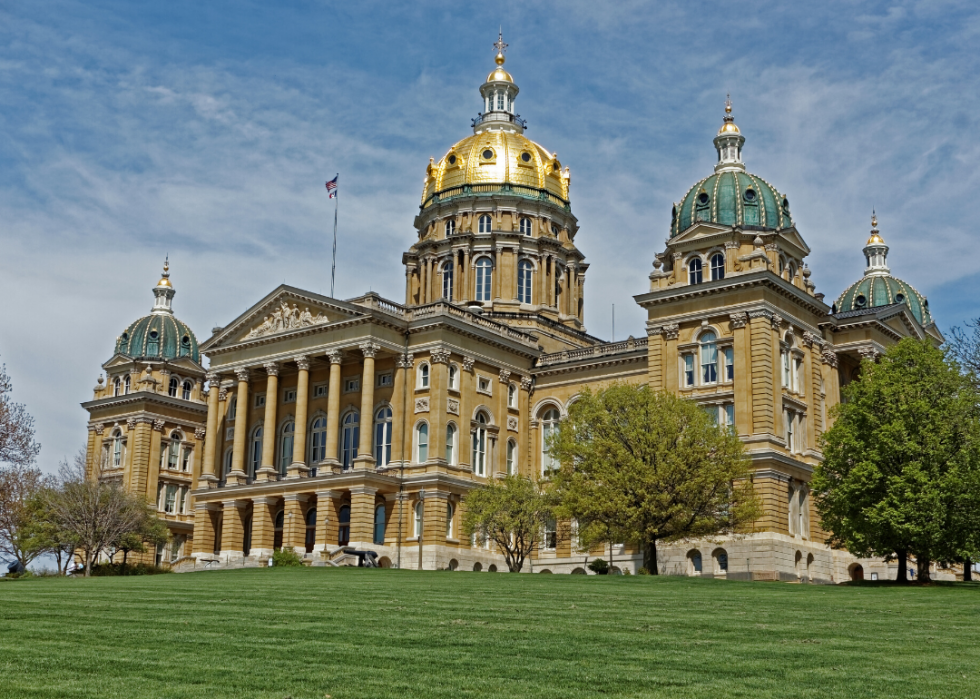
#39. Iowa
- Average contribution per eligible voter: $17.10 (2,239,000 eligible voters)
- Total contributions: $38.3 million
National race statistics:
- Total contributions: $26.3 million (#36 in the nation)
- Total to candidate/party: $26.4 million
--- Total to Democrats: $13.5 million (51.1% of total)
--- Total to Republicans: $12.4 million (46.9% of total)
- PAC contributions: $1.6 million
- Soft money contributions: $564.3 thousand
- Top industries of contributors:
--- #1 Industry: Retired ($5.6 million)
--- #2 Industry: Education ($1.3 million)
--- #3 Industry: Democratic/Liberal ($803.6 thousand)
State/local race statistics:
- Total state contributions: $12.0 million (#35 in the nation)
--- Total to Democrats: $3.1 million
--- Total to Republicans: $3.2 million
- Total money within state/local elections: $7.3 million (#32 in the nation)
--- Total to Democrats: $3.7 million
--- Total to Republicans: $3.6 million
In 2015, Super PACs were prohibited from making contributions to PACs, candidates, committees, or ballot measures. However, PACs can make unlimited contributions to committees, ballot measures, and individual candidates.

#38. Wisconsin
- Average contribution per eligible voter: $17.56 (4,296,000 eligible voters)
- Total contributions: $75.4 million
National race statistics:
- Total contributions: $41.7 million (#27 in the nation)
- Total to candidate/party: $40.0 million
--- Total to Democrats: $19.4 million (48.4% of total)
--- Total to Republicans: $19.9 million (49.7% of total)
- PAC contributions: $2.3 million
- Soft money contributions: $2.7 million
- Top industries of contributors:
--- #1 Industry: Retired ($9.2 million)
--- #2 Industry: Misc Manufacturing & Distributing ($2.6 million)
--- #3 Industry: Education ($1.9 million)
State/local race statistics:
- Total state contributions: $33.7 million (#16 in the nation)
--- Total to Democrats: $4.5 million
--- Total to Republicans: $4.2 million
- Total money within state/local elections: $18.2 million (#18 in the nation)
--- Total to Democrats: $4.5 million
--- Total to Republicans: $4.2 million
Wisconsin is a split state, with voters contributing almost equally to both political parties (though Democrats tend to garner slightly more donations). Wisconsin will be a state to watch during the 2020 election, as it could go either way.

#37. Indiana
- Average contribution per eligible voter: $17.82 (4,792,000 eligible voters)
- Total contributions: $85.4 million
National race statistics:
- Total contributions: $56.6 million (#23 in the nation)
- Total to candidate/party: $43.6 million
--- Total to Democrats: $19.4 million (44.4% of total)
--- Total to Republicans: $21.2 million (48.6% of total)
- PAC contributions: $2.5 million
- Soft money contributions: $16.8 million
- Top industries of contributors:
--- #1 Industry: Non-Profit Institutions ($9.6 million)
--- #2 Industry: Retired ($9.2 million)
--- #3 Industry: Real Estate ($7.4 million)
State/local race statistics:
- Total state contributions: $28.8 million (#18 in the nation)
--- Total to Democrats: $2.8 million
--- Total to Republicans: $15.0 million
- Total money within state/local elections: $19.9 million (#17 in the nation)
--- Total to Democrats: $3.1 million
--- Total to Republicans: $16.8 million
There’s no limit to the amount of money individuals, PACs, organizations, corporations, and unions can make to candidates in Indiana. The lack of donation limitation has caused some criticism in past elections.

#36. Utah
- Average contribution per eligible voter: $18.15 (2,109,000 eligible voters)
- Total contributions: $38.3 million
National race statistics:
- Total contributions: $18.4 million (#37 in the nation)
- Total to candidate/party: $17.6 million
--- Total to Democrats: $8.6 million (49.0% of total)
--- Total to Republicans: $8.5 million (48.1% of total)
- PAC contributions: $354.2 thousand
- Soft money contributions: $1.3 million
- Top industries of contributors:
--- #1 Industry: Retired ($3.9 million)
--- #2 Industry: Securities & Investment ($853.0 thousand)
--- #3 Industry: Education ($803.6 thousand)
State/local race statistics:
- Total state contributions: $19.9 million (#22 in the nation)
--- Total to Democrats: $964.3 thousand
--- Total to Republicans: $16.9 million
- Total money within state/local elections: $18.0 million (#20 in the nation)
--- Total to Democrats: $794.9 thousand
--- Total to Republicans: $17.2 million
Special interest groups raise most legislature money in Utah (mainly large corporations). The tradition of special interest groups being heavily invested in Utah politics has been largely criticised.

#35. Missouri
- Average contribution per eligible voter: $18.17 (4,564,000 eligible voters)
- Total contributions: $82.9 million
National race statistics:
- Total contributions: $46.6 million (#26 in the nation)
- Total to candidate/party: $45.1 million
--- Total to Democrats: $18.5 million (41.1% of total)
--- Total to Republicans: $25.7 million (57.1% of total)
- PAC contributions: $4.5 million
- Soft money contributions: $2.8 million
- Top industries of contributors:
--- #1 Industry: Retired ($10.8 million)
--- #2 Industry: Lawyers/Law Firms ($1.8 million)
--- #3 Industry: Non-Profit Institutions ($1.6 million)
State/local race statistics:
- Total state contributions: $36.4 million (#14 in the nation)
--- Total to Democrats: $9.4 million
--- Total to Republicans: $15.5 million
- Total money within state/local elections: $24.0 million (#14 in the nation)
--- Total to Democrats: $9.3 million
--- Total to Republicans: $14.6 million
In 2015, a $2,600 limit was placed on campaign contributions from individuals, unions, and corporations in Missouri. PACs can contribute unlimited amounts to politics, causing some controversy within the state.

#34. Arizona
- Average contribution per eligible voter: $18.45 (4,757,000 eligible voters)
- Total contributions: $87.8 million
National race statistics:
- Total contributions: $73.8 million (#17 in the nation)
- Total to candidate/party: $72.8 million
--- Total to Democrats: $36.0 million (49.5% of total)
--- Total to Republicans: $35.6 million (48.9% of total)
- PAC contributions: $1.6 million
- Soft money contributions: $2.7 million
- Top industries of contributors:
--- #1 Industry: Retired ($24.4 million)
--- #2 Industry: Real Estate ($3.5 million)
--- #3 Industry: Democratic/Liberal ($2.8 million)
State/local race statistics:
- Total state contributions: $13.9 million (#30 in the nation)
--- Total to Democrats: $4.5 million
--- Total to Republicans: $5.3 million
- Total money within state/local elections: $10.4 million (#28 in the nation)
--- Total to Democrats: $4.8 million
--- Total to Republicans: $5.6 million
During the 1940s, Arizona was a Democratic state, but that changed, and now the state is divided. Arizona is considered a battleground state and will be key to watch in the 2020 election.
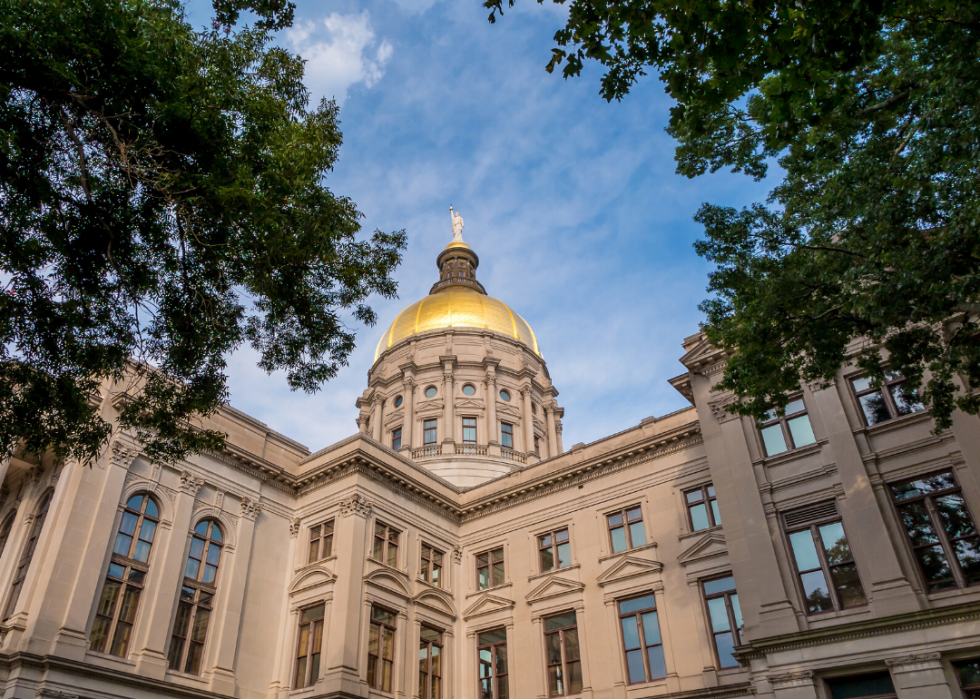
#33. Georgia
- Average contribution per eligible voter: $18.63 (7,311,000 eligible voters)
- Total contributions: $136.2 million
National race statistics:
- Total contributions: $100.1 million (#10 in the nation)
- Total to candidate/party: $93.4 million
--- Total to Democrats: $34.3 million (36.8% of total)
--- Total to Republicans: $56.2 million (60.2% of total)
- PAC contributions: $7.7 million
- Soft money contributions: $10.0 million
- Top industries of contributors:
--- #1 Industry: Retired ($18.3 million)
--- #2 Industry: Non-Profit Institutions ($8.6 million)
--- #3 Industry: Real Estate ($3.6 million)
State/local race statistics:
- Total state contributions: $36.1 million (#15 in the nation)
--- Total to Democrats: $6.3 million
--- Total to Republicans: $13.6 million
- Total money within state/local elections: $22.9 million (#15 in the nation)
--- Total to Democrats: $5.8 million
--- Total to Republicans: $14.4 million
Voters in Georgia voted Republican during the last presidential election, which is reflected by the number of Republican party donations in the state. Many nonprofit organizations reside in the state and account for a sizable percentage of political contributions.

#32. Oklahoma
- Average contribution per eligible voter: $18.67 (2,732,000 eligible voters)
- Total contributions: $51.0 million
National race statistics:
- Total contributions: $32.5 million (#33 in the nation)
- Total to candidate/party: $29.9 million
--- Total to Democrats: $9.5 million (31.7% of total)
--- Total to Republicans: $19.1 million (63.7% of total)
- PAC contributions: $1.6 million
- Soft money contributions: $5.9 million
- Top industries of contributors:
--- #1 Industry: Retired ($7.5 million)
--- #2 Industry: Oil & Gas ($5.5 million)
--- #3 Industry: Mining ($2.9 million)
State/local race statistics:
- Total state contributions: $18.5 million (#24 in the nation)
--- Total to Democrats: $2.2 million
--- Total to Republicans: $10.5 million
- Total money within state/local elections: $12.5 million (#24 in the nation)
--- Total to Democrats: $2.0 million
--- Total to Republicans: $10.6 million
In 1952, Oklahoma became a strong Republican state, and the party has held onto votes in the state ever since. Corporations and unions are prohibited from making any donations to candidates, PACs, and party committees but can make unlimited donations to individuals, parties, and ballot measures.

#31. Rhode Island
- Average contribution per eligible voter: $19.31 (782,000 eligible voters)
- Total contributions: $15.1 million
National race statistics:
- Total contributions: $10.4 million (#45 in the nation)
- Total to candidate/party: $10.5 million
--- Total to Democrats: $8.1 million (77.0% of total)
--- Total to Republicans: $2.0 million (18.8% of total)
- PAC contributions: $1.4 million
- Soft money contributions: $413.4 thousand
- Top industries of contributors:
--- #1 Industry: Retired ($1.4 million)
--- #2 Industry: Leadership PACs ($833.8 thousand)
--- #3 Industry: Education ($645.2 thousand)
State/local race statistics:
- Total state contributions: $4.7 million (#41 in the nation)
--- Total to Democrats: $2.4 million
--- Total to Republicans: $228.2 thousand
- Total money within state/local elections: $2.5 million (#43 in the nation)
--- Total to Democrats: $2.4 million
--- Total to Republicans: $45.7 thousand
The Great Depression marked a tipping point for the previously Republican state, and now voters tend to lean liberal. There's no limit to the number of money individuals and corporations can make to ballot measures in the state, but corporations and unions cannot contribute to candidates, party committees, or PACs.

#30. Mississippi
- Average contribution per eligible voter: $19.58 (2,178,000 eligible voters)
- Total contributions: $42.6 million
National race statistics:
- Total contributions: $11.1 million (#43 in the nation)
- Total to candidate/party: $11.1 million
--- Total to Democrats: $2.7 million (24.1% of total)
--- Total to Republicans: $8.2 million (73.8% of total)
- PAC contributions: $469.8 thousand
- Soft money contributions: $231.4 thousand
- Top industries of contributors:
--- #1 Industry: Retired ($2.9 million)
--- #2 Industry: Lawyers/Law Firms ($385.4 thousand)
--- #3 Industry: Leadership PACs ($350.5 thousand)
State/local race statistics:
- Total state contributions: $31.6 million (#17 in the nation)
--- Total to Democrats: $7.3 million
--- Total to Republicans: $23.0 million
- Total money within state/local elections: $43.3 million (#8 in the nation)
--- Total to Democrats: $14.0 million
--- Total to Republicans: $28.7 million
Mississippi voters have cast Republican votes since the 1970s. A loophole exists in the state's campaign contributions policy that allows candidates to pocket campaign money that was raised prior to 2018. In 2015, a law was created that limited the amount of political donations made by corporations to $1,000 annually, but there are no limits on individual or union donations.
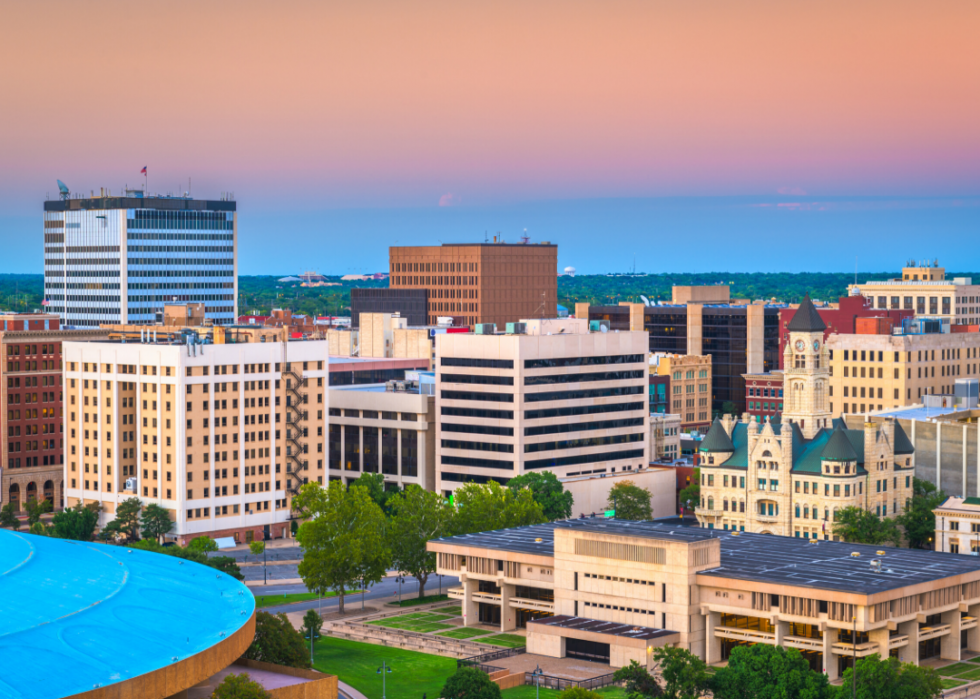
#29. Kansas
- Average contribution per eligible voter: $19.66 (2,026,000 eligible voters)
- Total contributions: $39.8 million
National race statistics:
- Total contributions: $35.2 million (#31 in the nation)
- Total to candidate/party: $26.3 million
--- Total to Democrats: $10.3 million (39.2% of total)
--- Total to Republicans: $15.6 million (59.3% of total)
- PAC contributions: $2.8 million
- Soft money contributions: $9.3 million
- Top industries of contributors:
--- #1 Industry: Oil & Gas ($10.9 million)
--- #2 Industry: Retired ($5.1 million)
--- #3 Industry: Education ($701.7 thousand)
State/local race statistics:
- Total state contributions: $4.6 million (#42 in the nation)
--- Total to Democrats: $770.0 thousand
--- Total to Republicans: $2.3 million
- Total money within state/local elections: $2.8 million (#40 in the nation)
--- Total to Democrats: $698.2 thousand
--- Total to Republicans: $2.1 million
Kansas has voted Republican in 19 of the past 20 presidential elections. Individuals, unions, and corporations in Kansas are all limited when it comes to political donations, but there is a loophole that allows candidates and parties to receive funds from out of state.
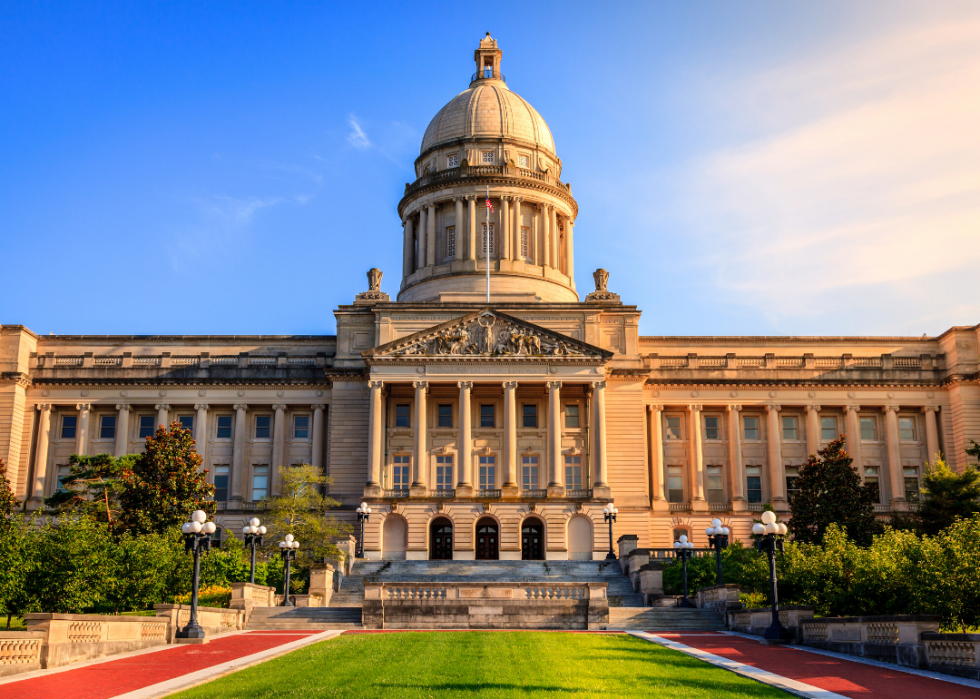
#28. Kentucky
- Average contribution per eligible voter: $20.03 (3,249,000 eligible voters)
- Total contributions: $65.1 million
National race statistics:
- Total contributions: $26.9 million (#35 in the nation)
- Total to candidate/party: $25.4 million
--- Total to Democrats: $11.3 million (44.6% of total)
--- Total to Republicans: $13.6 million (53.4% of total)
- PAC contributions: $600.8 thousand
- Soft money contributions: $2.2 million
- Top industries of contributors:
--- #1 Industry: Retired ($5.6 million)
--- #2 Industry: Republican/Conservative ($1.3 million)
--- #3 Industry: Lawyers/Law Firms ($930.8 thousand)
State/local race statistics:
- Total state contributions: $38.2 million (#13 in the nation)
--- Total to Democrats: $15.8 million
--- Total to Republicans: $14.8 million
- Total money within state/local elections: $37.0 million (#9 in the nation)
--- Total to Democrats: $18.6 million
--- Total to Republicans: $17.5 million
Kentucky is not a state with split political affiliations, and most voters are and remain Democratic. Kentucky state law prevents lobbyists from giving money to candidates for the Kentucky General Assembly, but the law allows lobbyists to donate to political parties—a controversial rule.

#27. New Jersey
- Average contribution per eligible voter: $20.50 (6,267,000 eligible voters)
- Total contributions: $128.5 million
National race statistics:
- Total contributions: $87.8 million (#14 in the nation)
- Total to candidate/party: $81.2 million
--- Total to Democrats: $53.6 million (66.1% of total)
--- Total to Republicans: $26.1 million (32.2% of total)
- PAC contributions: $3.2 million
- Soft money contributions: $8.7 million
- Top industries of contributors:
--- #1 Industry: Retired ($15.1 million)
--- #2 Industry: Lawyers/Law Firms ($4.2 million)
--- #3 Industry: Education ($3.6 million)
State/local race statistics:
- Total state contributions: $40.7 million (#12 in the nation)
--- Total to Democrats: $12.8 million
--- Total to Republicans: $6.1 million
- Total money within state/local elections: $20.1 million (#16 in the nation)
--- Total to Democrats: $13.5 million
--- Total to Republicans: $6.6 million
Voters in New Jersey have not voted Republican since 1992. Corporations, unions, and individuals can make unlimited donations to leadership committees in New Jersey. The state has faced recent dark money scandals, with political funds coming from undisclosed sources.

#26. North Carolina
- Average contribution per eligible voter: $20.64 (7,444,000 eligible voters)
- Total contributions: $153.6 million
National race statistics:
- Total contributions: $80.2 million (#16 in the nation)
- Total to candidate/party: $77.2 million
--- Total to Democrats: $37.2 million (48.2% of total)
--- Total to Republicans: $38.5 million (49.9% of total)
- PAC contributions: $3.9 million
- Soft money contributions: $4.6 million
- Top industries of contributors:
--- #1 Industry: Retired ($17.4 million)
--- #2 Industry: Democratic/Liberal ($3.8 million)
--- #3 Industry: Education ($3.2 million)
State/local race statistics:
- Total state contributions: $73.4 million (#9 in the nation)
--- Total to Democrats: $37.1 million
--- Total to Republicans: $24.6 million
- Total money within state/local elections: $71.0 million (#6 in the nation)
--- Total to Democrats: $45.7 million
--- Total to Republicans: $25.2 million
In the past, Republicans dominated North Carolina, but that changed in recent years. Suburbs and cities tend to vote more Democratic, while rural areas are more Republican than they were in past years.

#25. Minnesota
- Average contribution per eligible voter: $20.94 (4,006,000 eligible voters)
- Total contributions: $83.9 million
National race statistics:
- Total contributions: $65.1 million (#19 in the nation)
- Total to candidate/party: $60.2 million
--- Total to Democrats: $38.9 million (64.7% of total)
--- Total to Republicans: $20.3 million (33.7% of total)
- PAC contributions: $6.4 million
- Soft money contributions: $5.9 million
- Top industries of contributors:
--- #1 Industry: Retired ($10.9 million)
--- #2 Industry: Democratic/Liberal ($5.1 million)
--- #3 Industry: Crop Production & Basic Processing ($3.4 million)
State/local race statistics:
- Total state contributions: $18.8 million (#23 in the nation)
--- Total to Democrats: $4.1 million
--- Total to Republicans: $2.9 million
- Total money within state/local elections: $9.4 million (#30 in the nation)
--- Total to Democrats: $5.4 million
--- Total to Republicans: $3.9 million
Minnesota is considered a swing state, and many expect the state to vote Republican in the upcoming 2020 presidential election. Interestingly, most voters in the state donated to the Democratic party.

#24. New Hampshire
- Average contribution per eligible voter: $21.47 (1,025,000 eligible voters)
- Total contributions: $22.0 million
National race statistics:
- Total contributions: $17.8 million (#39 in the nation)
- Total to candidate/party: $17.7 million
--- Total to Democrats: $13.1 million (74.0% of total)
--- Total to Republicans: $4.4 million (24.6% of total)
- PAC contributions: $230.1 thousand
- Soft money contributions: $473.5 thousand
- Top industries of contributors:
--- #1 Industry: Retired ($4.1 million)
--- #2 Industry: Education ($829.1 thousand)
--- #3 Industry: Democratic/Liberal ($787.2 thousand)
State/local race statistics:
- Total state contributions: $4.2 million (#44 in the nation)
--- Total to Democrats: $1.6 million
--- Total to Republicans: $888.5 thousand
- Total money within state/local elections: $2.8 million (#41 in the nation)
--- Total to Democrats: $1.7 million
--- Total to Republicans: $1.1 million
New Hampshire is a swing state that's known for being the first primary state in the nation. Winners in the New Hampshire primary tend to become front-runners. New Hampshire maintains its “first in the nation” stance through a law that allows the state to move its primary to an earlier date if another state attempts to be first. New Hampshire holds four electoral votes.

#23. Vermont
- Average contribution per eligible voter: $21.49 (497,000 eligible voters)
- Total contributions: $10.7 million
National race statistics:
- Total contributions: $8.9 million (#47 in the nation)
- Total to candidate/party: $8.7 million
--- Total to Democrats: $7.5 million (85.6% of total)
--- Total to Republicans: $1.0 million (11.4% of total)
- PAC contributions: $228.9 thousand
- Soft money contributions: $394.5 thousand
- Top industries of contributors:
--- #1 Industry: Retired ($1.5 million)
--- #2 Industry: Education ($540.4 thousand)
--- #3 Industry: Democratic/Liberal ($486.4 thousand)
State/local race statistics:
- Total state contributions: $1.8 million (#47 in the nation)
--- Total to Democrats: $1.3 million
--- Total to Republicans: $243.9 thousand
- Total money within state/local elections: $2.6 million (#42 in the nation)
--- Total to Democrats: $2.3 million
--- Total to Republicans: $314.1 thousand
Vermont is often considered a liberal state, but before the 1992 presidential election, Vermont voted Republican. Since 1992, Vermont has voted Democrat.

#22. Pennsylvania
- Average contribution per eligible voter: $21.56 (9,475,000 eligible voters)
- Total contributions: $204.2 million
National race statistics:
- Total contributions: $116.1 million (#9 in the nation)
- Total to candidate/party: $96.8 million
--- Total to Democrats: $56.3 million (58.2% of total)
--- Total to Republicans: $38.2 million (39.5% of total)
- PAC contributions: $7.7 million
- Soft money contributions: $21.8 million
- Top industries of contributors:
--- #1 Industry: Retired ($17.8 million)
--- #2 Industry: Securities & Investment ($15.3 million)
--- #3 Industry: Lawyers/Law Firms ($5.2 million)
State/local race statistics:
- Total state contributions: $88.1 million (#7 in the nation)
--- Total to Democrats: $34.2 million
--- Total to Republicans: $24.1 million
- Total money within state/local elections: $58.3 million (#7 in the nation)
--- Total to Democrats: $37.0 million
--- Total to Republicans: $21.2 million
Pennsylvanians tend to be divided when it comes to politics, with a split nearly down the middle. However, Pennsylvania now has 20 electoral votes, making it a state to watch closely during the upcoming presidential election.

#21. Oregon
- Average contribution per eligible voter: $23.17 (3,138,000 eligible voters)
- Total contributions: $72.7 million
National race statistics:
- Total contributions: $48.8 million (#25 in the nation)
- Total to candidate/party: $47.7 million
--- Total to Democrats: $34.6 million (72.5% of total)
--- Total to Republicans: $11.8 million (24.8% of total)
- PAC contributions: $1.5 million
- Soft money contributions: $2.4 million
- Top industries of contributors:
--- #1 Industry: Retired ($11.6 million)
--- #2 Industry: Democratic/Liberal ($2.3 million)
--- #3 Industry: Education ($2.2 million)
State/local race statistics:
- Total state contributions: $23.9 million (#21 in the nation)
--- Total to Democrats: $7.1 million
--- Total to Republicans: $5.0 million
- Total money within state/local elections: $15.1 million (#22 in the nation)
--- Total to Democrats: $9.0 million
--- Total to Republicans: $6.1 million
Oregon is on the blue side of things when it comes to politics, with most voters casting a Democratic vote. Super PACs in Oregon cannot contribute to politics, but PACs, corporations, individuals, unions, and anyone else can.
You may also like: 'I have a dream' and the rest of the greatest speeches of the 20th century

#20. Arkansas
- Average contribution per eligible voter: $23.27 (2,158,000 eligible voters)
- Total contributions: $50.2 million
National race statistics:
- Total contributions: $38.1 million (#28 in the nation)
- Total to candidate/party: $20.7 million
--- Total to Democrats: $6.1 million (29.5% of total)
--- Total to Republicans: $14.2 million (68.4% of total)
- PAC contributions: $2.6 million
- Soft money contributions: $18.4 million
- Top industries of contributors:
--- #1 Industry: Securities & Investment ($9.5 million)
--- #2 Industry: Poultry & Eggs ($8.5 million)
--- #3 Industry: Retired ($3.7 million)
State/local race statistics:
- Total state contributions: $12.1 million (#34 in the nation)
--- Total to Democrats: $1.7 million
--- Total to Republicans: $4.4 million
- Total money within state/local elections: $6.3 million (#33 in the nation)
--- Total to Democrats: $1.6 million
--- Total to Republicans: $4.0 million
Republicans tend to win in Arkansas when it comes to elections. The state has some of the strictest campaign donation laws, with individuals capped at $2,000 in donations. Corporations and unions cannot contribute to candidates for office but can contribute to ballot measures.

#19. Maryland
- Average contribution per eligible voter: $24.28 (4,281,000 eligible voters)
- Total contributions: $103.9 million
National race statistics:
- Total contributions: $88.7 million (#13 in the nation)
- Total to candidate/party: $84.5 million
--- Total to Democrats: $63.2 million (74.8% of total)
--- Total to Republicans: $18.8 million (22.3% of total)
- PAC contributions: $11.0 million
- Soft money contributions: $9.0 million
- Top industries of contributors:
--- #1 Industry: Retired ($12.5 million)
--- #2 Industry: Civil Servants/Public Officials ($4.8 million)
--- #3 Industry: Lawyers/Law Firms ($4.4 million)
State/local race statistics:
- Total state contributions: $15.3 million (#28 in the nation)
--- Total to Democrats: $3.5 million
--- Total to Republicans: $743.8 thousand
- Total money within state/local elections: $0.0 thousand (#51 in the nation)
--- Total to Democrats:
--- Total to Republicans:
Maryland can be a swing state, but voters tend to sway Democratic, as is the case in most mid-Atlantic states. Individuals, corporations, and unions can contribute up to $6,000 to candidates but can contribute unlimited amounts to ballot measures.
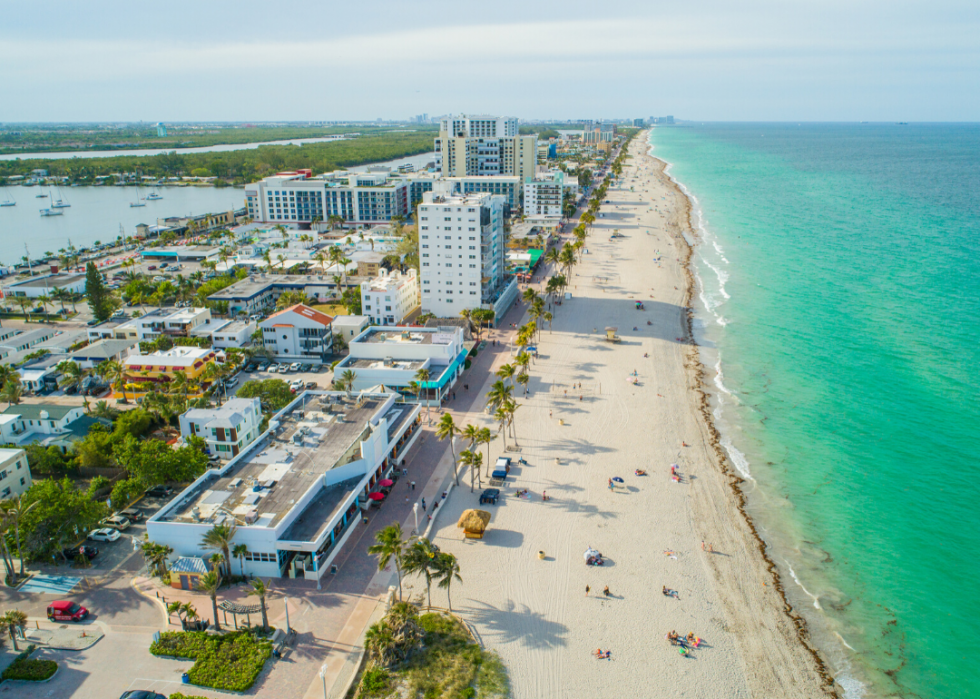
#18. Florida
- Average contribution per eligible voter: $25.93 (15,047,000 eligible voters)
- Total contributions: $390.2 million
National race statistics:
- Total contributions: $278.8 million (#4 in the nation)
- Total to candidate/party: $239.3 million
--- Total to Democrats: $90.2 million (37.7% of total)
--- Total to Republicans: $143.1 million (59.8% of total)
- PAC contributions: $4.7 million
- Soft money contributions: $54.9 million
- Top industries of contributors:
--- #1 Industry: Retired ($80.9 million)
--- #2 Industry: Securities & Investment ($32.4 million)
--- #3 Industry: Real Estate ($13.1 million)
State/local race statistics:
- Total state contributions: $111.4 million (#5 in the nation)
--- Total to Democrats: $12.3 million
--- Total to Republicans: $20.5 million
- Total money within state/local elections: $28.8 million (#11 in the nation)
--- Total to Democrats: $10.2 million
--- Total to Republicans: $18.5 million
Florida voters often vote according to the region, with the southern part of the state often leaning Republican, while other areas vote Democratic. Individual, corporate, and union donations cannot exceed $3,000 to state candidates and $1,000 to Senate or assembly candidates.
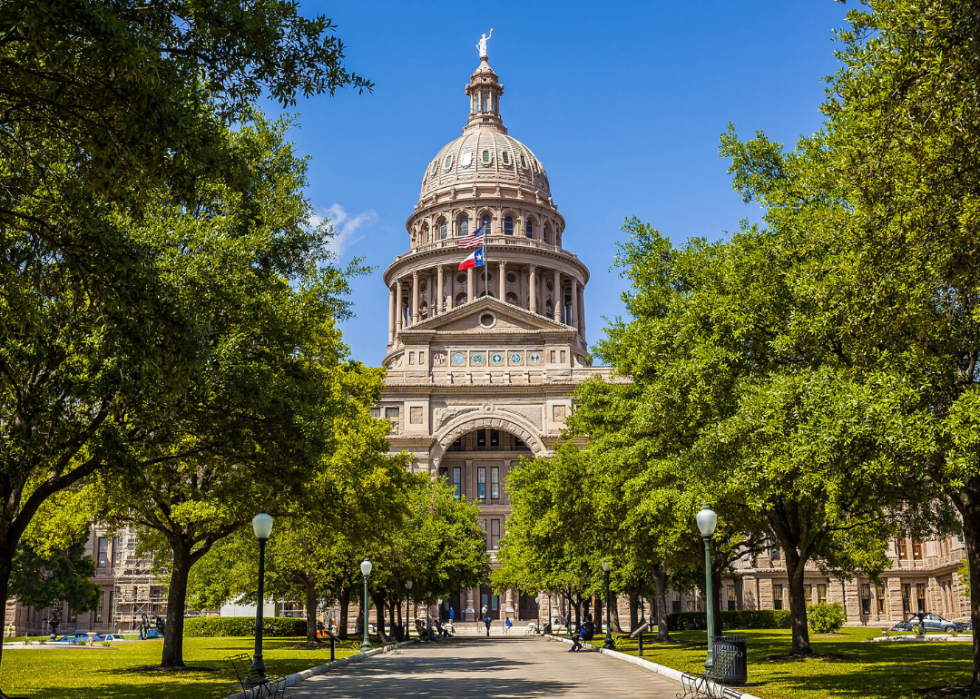
#17. Texas
- Average contribution per eligible voter: $26.42 (18,374,000 eligible voters)
- Total contributions: $485.5 million
National race statistics:
- Total contributions: $339.6 million (#3 in the nation)
- Total to candidate/party: $302.7 million
--- Total to Democrats: $106.5 million (35.2% of total)
--- Total to Republicans: $190.1 million (62.8% of total)
- PAC contributions: $14.9 million
- Soft money contributions: $46.0 million
- Top industries of contributors:
--- #1 Industry: Retired ($61.3 million)
--- #2 Industry: Oil & Gas ($35.4 million)
--- #3 Industry: Real Estate ($22.5 million)
State/local race statistics:
- Total state contributions: $145.9 million (#3 in the nation)
--- Total to Democrats: $34.5 million
--- Total to Republicans: $49.7 million
- Total money within state/local elections: $80.6 million (#5 in the nation)
--- Total to Democrats: $34.0 million
--- Total to Republicans: $46.6 million
Texas is known today for mainly supporting the Republican party, but it wasn't always that way. Before the 1960s, Texas was mostly Democratic. Many believe that the presidential candidate to win Texas will win the election.

#16. Maine
- Average contribution per eligible voter: $26.45 (1,056,000 eligible voters)
- Total contributions: $27.9 million
National race statistics:
- Total contributions: $18.2 million (#38 in the nation)
- Total to candidate/party: $17.1 million
--- Total to Democrats: $13.2 million (76.7% of total)
--- Total to Republicans: $3.7 million (21.4% of total)
- PAC contributions: $13.7 thousand
- Soft money contributions: $1.4 million
- Top industries of contributors:
--- #1 Industry: Retired ($3.6 million)
--- #2 Industry: Securities & Investment ($1.9 million)
--- #3 Industry: Democratic/Liberal ($1.3 million)
State/local race statistics:
- Total state contributions: $9.7 million (#37 in the nation)
--- Total to Democrats: $3.2 million
--- Total to Republicans: $1.6 million
- Total money within state/local elections: $3.9 million (#37 in the nation)
--- Total to Democrats: $2.4 million
--- Total to Republicans: $1.5 million
Once a Republican stronghold, the state of Maine has voted Democrat since 1988. Some believe that Maine could act as a swing state in the 2020 presidential election.
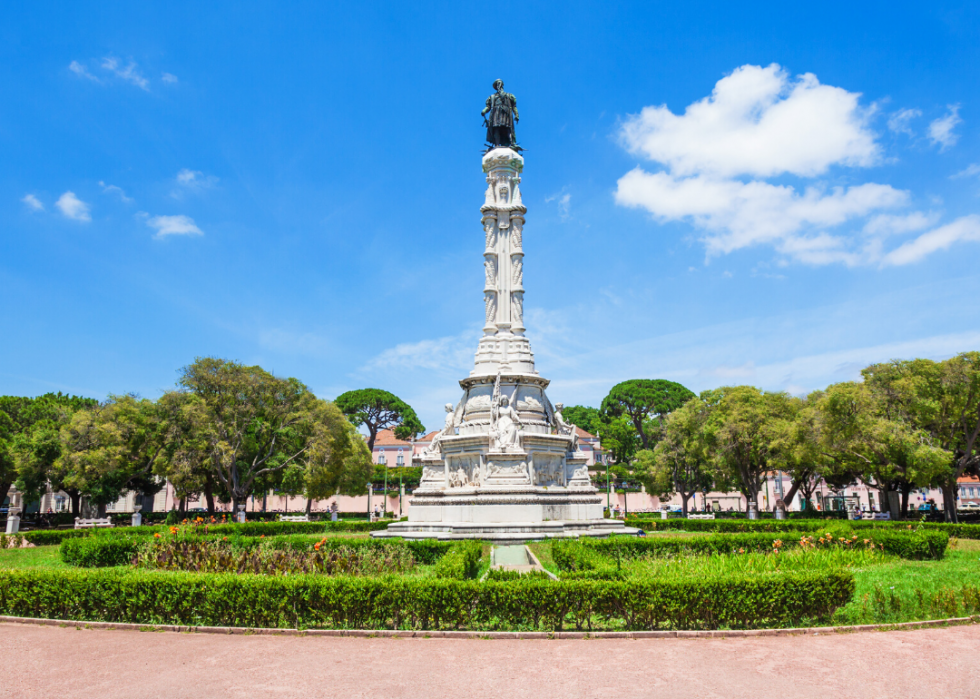
#15. New Mexico
- Average contribution per eligible voter: $26.70 (1,485,000 eligible voters)
- Total contributions: $39.7 million
National race statistics:
- Total contributions: $28.1 million (#34 in the nation)
- Total to candidate/party: $26.3 million
--- Total to Democrats: $16.6 million (63.1% of total)
--- Total to Republicans: $9.3 million (35.5% of total)
- PAC contributions: $295.1 thousand
- Soft money contributions: $2.0 million
- Top industries of contributors:
--- #1 Industry: Retired ($7.8 million)
--- #2 Industry: Education ($1.0 million)
--- #3 Industry: Democratic/Liberal ($1.0 million)
State/local race statistics:
- Total state contributions: $11.6 million (#36 in the nation)
--- Total to Democrats: $6.2 million
--- Total to Republicans: $3.0 million
- Total money within state/local elections: $11.2 million (#27 in the nation)
--- Total to Democrats: $7.5 million
--- Total to Republicans: $3.7 million
New Mexico voters have long cast Democratic ballots and supported the Democratic party, but the state can be swayed and has voted Republican. New Mexico is considered a swing state.

#14. Colorado
- Average contribution per eligible voter: $26.71 (4,029,000 eligible voters)
- Total contributions: $107.6 million
National race statistics:
- Total contributions: $91.8 million (#12 in the nation)
- Total to candidate/party: $81.8 million
--- Total to Democrats: $52.0 million (63.6% of total)
--- Total to Republicans: $28.3 million (34.6% of total)
- PAC contributions: $2.0 million
- Soft money contributions: $12.2 million
- Top industries of contributors:
--- #1 Industry: Retired ($18.8 million)
--- #2 Industry: Real Estate ($3.6 million)
--- #3 Industry: Non-Profit Institutions ($3.5 million)
State/local race statistics:
- Total state contributions: $15.8 million (#27 in the nation)
--- Total to Democrats: $4.5 million
--- Total to Republicans: $1.9 million
- Total money within state/local elections: $5.0 million (#35 in the nation)
--- Total to Democrats: $3.7 million
--- Total to Republicans: $1.3 million
Colorado voters contribute more on average than voters in most other states, and Colorado tends to vote Democratic. The state's Senate race is being watched closely as Democratic John Hickenlooper—who ran a 2020 presidential campaign—is aiming to beat incumbent Republican Cory Gardner.

#13. Connecticut
- Average contribution per eligible voter: $27.09 (2,539,000 eligible voters)
- Total contributions: $68.8 million
National race statistics:
- Total contributions: $63.3 million (#20 in the nation)
- Total to candidate/party: $50.5 million
--- Total to Democrats: $33.8 million (66.9% of total)
--- Total to Republicans: $15.5 million (30.6% of total)
- PAC contributions: $3.8 million
- Soft money contributions: $18.7 million
- Top industries of contributors:
--- #1 Industry: Retired ($12.4 million)
--- #2 Industry: Securities & Investment ($11.8 million)
--- #3 Industry: Republican/Conservative ($4.8 million)
State/local race statistics:
- Total state contributions: $5.5 million (#39 in the nation)
--- Total to Democrats: $2.2 million
--- Total to Republicans: $1.4 million
- Total money within state/local elections: $2.1 million (#45 in the nation)
--- Total to Democrats: $1.2 million
--- Total to Republicans: $889.9 thousand
Connecticut is a swing state and can go either way when it comes to an election. Most voters in Connecticut contribute to the Democratic party. Corporations and unions in the state cannot contribute to candidates directly.

#12. Washington
- Average contribution per eligible voter: $35.61 (5,228,000 eligible voters)
- Total contributions: $186.2 million
National race statistics:
- Total contributions: $123.9 million (#8 in the nation)
- Total to candidate/party: $108.7 million
--- Total to Democrats: $80.1 million (73.7% of total)
--- Total to Republicans: $25.5 million (23.4% of total)
- PAC contributions: $3.8 million
- Soft money contributions: $20.1 million
- Top industries of contributors:
--- #1 Industry: Retired ($27.7 million)
--- #2 Industry: Other ($8.2 million)
--- #3 Industry: Democratic/Liberal ($5.8 million)
State/local race statistics:
- Total state contributions: $62.3 million (#10 in the nation)
--- Total to Democrats: $18.1 million
--- Total to Republicans: $9.8 million
- Total money within state/local elections: $30.3 million (#10 in the nation)
--- Total to Democrats: $18.9 million
--- Total to Republicans: $10.8 million
Washington is a Democratic stronghold, with over 70% of voters contributing to the Democratic party. Individuals, unions, and corporations can all make unlimited donations to state legislation proposals (ballot measures), but limits are put in place when donating to statewide candidates.

#11. Montana
- Average contribution per eligible voter: $35.68 (812,000 eligible voters)
- Total contributions: $29.0 million
National race statistics:
- Total contributions: $16.2 million (#40 in the nation)
- Total to candidate/party: $16.6 million
--- Total to Democrats: $7.6 million (45.8% of total)
--- Total to Republicans: $8.3 million (49.8% of total)
- PAC contributions: $245.8 thousand
- Soft money contributions: $847.5 thousand
- Top industries of contributors:
--- #1 Industry: Retired ($4.8 million)
--- #2 Industry: General Contractors ($1.5 million)
--- #3 Industry: Civil Servants/Public Officials ($800.4 thousand)
State/local race statistics:
- Total state contributions: $12.8 million (#31 in the nation)
--- Total to Democrats: $3.2 million
--- Total to Republicans: $8.4 million
- Total money within state/local elections: $15.0 million (#23 in the nation)
--- Total to Democrats: $5.1 million
--- Total to Republicans: $9.3 million
Montana is often considered to be a strong red state. The Democratic party is mostly focusing on Montana this year, as many believe that the state could turn blue in the upcoming presidential election.

#10. California
- Average contribution per eligible voter: $37.56 (25,525,000 eligible voters)
- Total contributions: $958.8 million
National race statistics:
- Total contributions: $757.4 million (#1 in the nation)
- Total to candidate/party: $603.0 million
--- Total to Democrats: $398.1 million (66.0% of total)
--- Total to Republicans: $184.0 million (30.5% of total)
- PAC contributions: $16.7 million
- Soft money contributions: $214.3 million
- Top industries of contributors:
--- #1 Industry: Retired ($114.6 million)
--- #2 Industry: Securities & Investment ($63.5 million)
--- #3 Industry: Misc Finance ($54.0 million)
State/local race statistics:
- Total state contributions: $201.5 million (#2 in the nation)
--- Total to Democrats: $73.5 million
--- Total to Republicans: $20.0 million
- Total money within state/local elections: $101.2 million (#4 in the nation)
--- Total to Democrats: $76.5 million
--- Total to Republicans: $19.7 million
As one of the most populated states, California has long been known for being a Democratic stronghold. It seems likely that California voters will continue the Democratic trend during the 2020 presidential election. The number of voters registered in California hit a record in September at 21 million people, or 83.5% of eligible voters.

#9. New York
- Average contribution per eligible voter: $38.79 (13,684,000 eligible voters)
- Total contributions: $530.8 million
National race statistics:
- Total contributions: $449.1 million (#2 in the nation)
- Total to candidate/party: $341.8 million
--- Total to Democrats: $242.1 million (70.8% of total)
--- Total to Republicans: $84.1 million (24.6% of total)
- PAC contributions: $9.7 million
- Soft money contributions: $182.3 million
- Top industries of contributors:
--- #1 Industry: Securities & Investment ($128.4 million)
--- #2 Industry: Retired ($41.4 million)
--- #3 Industry: Misc Finance ($33.8 million)
State/local race statistics:
- Total state contributions: $81.7 million (#8 in the nation)
--- Total to Democrats: $23.9 million
--- Total to Republicans: $6.3 million
- Total money within state/local elections: $24.3 million (#13 in the nation)
--- Total to Democrats: $17.7 million
--- Total to Republicans: $5.5 million
The 13 million voters who live in the state of New York mostly vote Democratic. New York has long been a blue state and will likely continue to be so during the upcoming election.

#8. Nevada
- Average contribution per eligible voter: $39.18 (2,067,000 eligible voters)
- Total contributions: $81.0 million
National race statistics:
- Total contributions: $68.5 million (#18 in the nation)
- Total to candidate/party: $39.0 million
--- Total to Democrats: $13.0 million (33.3% of total)
--- Total to Republicans: $25.3 million (64.8% of total)
- PAC contributions: $473.8 thousand
- Soft money contributions: $30.3 million
- Top industries of contributors:
--- #1 Industry: Casinos/Gambling ($18.4 million)
--- #2 Industry: Health Services/HMOs ($13.6 million)
--- #3 Industry: Retired ($9.2 million)
State/local race statistics:
- Total state contributions: $12.5 million (#32 in the nation)
--- Total to Democrats: $3.7 million
--- Total to Republicans: $3.1 million
- Total money within state/local elections: $8.2 million (#31 in the nation)
--- Total to Democrats: $4.1 million
--- Total to Republicans: $2.9 million
Nevada voters contribute more to the Republican party at the national level, but this isn't true at the state level, where Democrats enjoy far more contributions from voters. Typically, Nevada votes Democratic.

#7. Massachusetts
- Average contribution per eligible voter: $39.41 (4,919,000 eligible voters)
- Total contributions: $193.9 million
National race statistics:
- Total contributions: $167.5 million (#7 in the nation)
- Total to candidate/party: $138.9 million
--- Total to Democrats: $115.3 million (83.1% of total)
--- Total to Republicans: $19.6 million (14.1% of total)
- PAC contributions: $5.6 million
- Soft money contributions: $40.8 million
- Top industries of contributors:
--- #1 Industry: Securities & Investment ($34.2 million)
--- #2 Industry: Retired ($21.1 million)
--- #3 Industry: Education ($9.7 million)
State/local race statistics:
- Total state contributions: $26.3 million (#20 in the nation)
--- Total to Democrats: $13.1 million
--- Total to Republicans: $1.4 million
- Total money within state/local elections: $12.2 million (#25 in the nation)
--- Total to Democrats: $11.6 million
--- Total to Republicans: $584.1 thousand
Massachusetts is dominated voting-wise by its largest city, Boston, which is liberal and progressive. As such, Massachusetts voters largely support the Democratic party. There are no limits on ballot measure contributions in the state, but individuals cannot contribute more than $1,000 to individuals, and unions cannot contribute more than $500 to candidates for office.

#6. Louisiana
- Average contribution per eligible voter: $41.48 (3,326,000 eligible voters)
- Total contributions: $138.0 million
National race statistics:
- Total contributions: $33.6 million (#32 in the nation)
- Total to candidate/party: $32.6 million
--- Total to Democrats: $7.3 million (22.3% of total)
--- Total to Republicans: $23.8 million (73.1% of total)
- PAC contributions: $1.4 million
- Soft money contributions: $2.5 million
- Top industries of contributors:
--- #1 Industry: Retired ($5.9 million)
--- #2 Industry: Lawyers/Law Firms ($1.7 million)
--- #3 Industry: Sea Transport ($1.3 million)
State/local race statistics:
- Total state contributions: $104.4 million (#6 in the nation)
--- Total to Democrats: $32.9 million
--- Total to Republicans: $61.4 million
- Total money within state/local elections: $103.6 million (#3 in the nation)
--- Total to Democrats: $36.6 million
--- Total to Republicans: $65.9 million
Louisiana is a contentious state when it comes to politics. Voters have gone both ways in Louisiana, with Democrats gaining more contributions at the state level, while Republicans are highly supported at the national level.

#5. Alaska
- Average contribution per eligible voter: $45.60 (497,000 eligible voters)
- Total contributions: $22.7 million
National race statistics:
- Total contributions: $10.2 million (#46 in the nation)
- Total to candidate/party: $9.7 million
--- Total to Democrats: $3.2 million (32.9% of total)
--- Total to Republicans: $4.2 million (43.6% of total)
- PAC contributions: $85.8 thousand
- Soft money contributions: $610.6 thousand
- Top industries of contributors:
--- #1 Industry: Retired ($2.7 million)
--- #2 Industry: Democratic/Liberal ($535.9 thousand)
--- #3 Industry: Civil Servants/Public Officials ($413.8 thousand)
State/local race statistics:
- Total state contributions: $12.5 million (#33 in the nation)
--- Total to Democrats: $831.1 thousand
--- Total to Republicans: $1.7 million
- Total money within state/local elections: $2.4 million (#44 in the nation)
--- Total to Democrats: $818.8 thousand
--- Total to Republicans: $1.6 million
The only time the state of Alaska has voted Democratic was in 1964. Otherwise, voters in Alaska vote Republican. Individuals in Alaska cannot contribute more than $500 to politics.
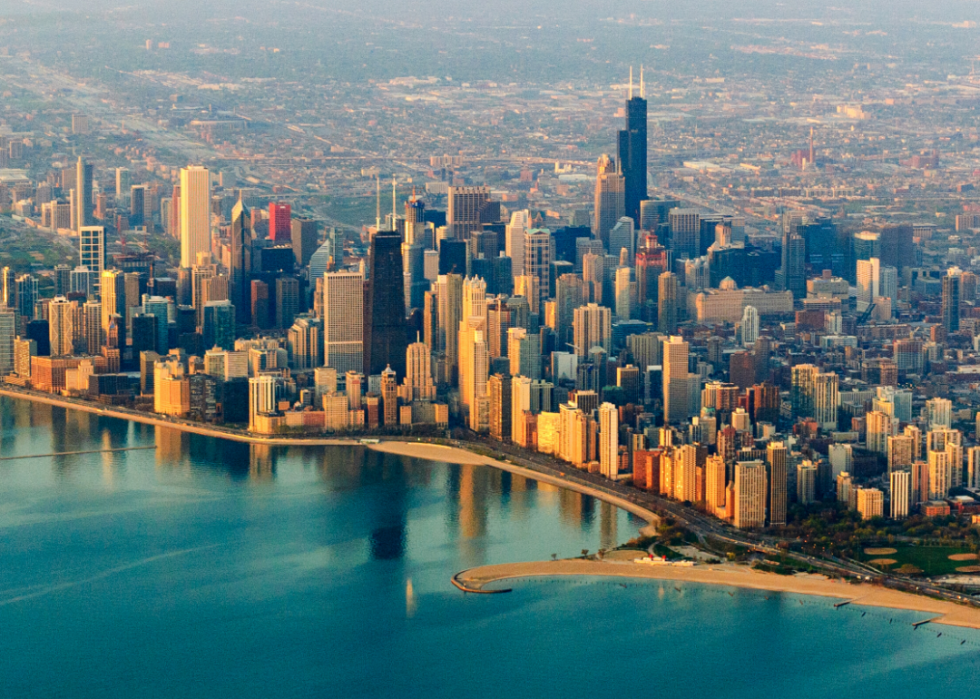
#4. Illinois
- Average contribution per eligible voter: $48.38 (8,947,000 eligible voters)
- Total contributions: $432.9 million
National race statistics:
- Total contributions: $213.4 million (#5 in the nation)
- Total to candidate/party: $135.9 million
--- Total to Democrats: $86.4 million (63.6% of total)
--- Total to Republicans: $46.6 million (34.3% of total)
- PAC contributions: $16.9 million
- Soft money contributions: $88.2 million
- Top industries of contributors:
--- #1 Industry: Misc Manufacturing & Distributing ($39.1 million)
--- #2 Industry: Securities & Investment ($21.8 million)
--- #3 Industry: Real Estate ($21.3 million)
State/local race statistics:
- Total state contributions: $219.5 million (#1 in the nation)
--- Total to Democrats: $40.4 million
--- Total to Republicans: $10.8 million
- Total money within state/local elections: $142.3 million (#1 in the nation)
--- Total to Democrats: $47.9 million
--- Total to Republicans: $10.1 million
Illinois, California, and New York are the largest Democratic states in the nation. The majority of voters in Illinois contribute to the Democratic party. Corporations and unions in Illinois can contribute up to $10,800 to candidates, making it one of the states that allows the most contribution dollars from unions and corporations.

#3. Virginia
- Average contribution per eligible voter: $58.75 (5,773,000 eligible voters)
- Total contributions: $339.2 million
National race statistics:
- Total contributions: $208.5 million (#6 in the nation)
- Total to candidate/party: $184.6 million
--- Total to Democrats: $76.7 million (41.5% of total)
--- Total to Republicans: $103.5 million (56.1% of total)
- PAC contributions: $46.5 million
- Soft money contributions: $33.1 million
- Top industries of contributors:
--- #1 Industry: Republican/Conservative ($24.5 million)
--- #2 Industry: Retired ($19.1 million)
--- #3 Industry: Leadership PACs ($9.7 million)
State/local race statistics:
- Total state contributions: $130.6 million (#4 in the nation)
--- Total to Democrats: $50.0 million
--- Total to Republicans: $41.6 million
- Total money within state/local elections: $116.5 million (#2 in the nation)
--- Total to Democrats: $67.7 million
--- Total to Republicans: $47.9 million
Virginia was once a solidly red state but is now strongly blue. Most voters in Virginia contribute to Democrats on the state level and Republicans on the national level. Interestingly, there are no limits on contributions from individuals, corporations, unions, or any others in the state of Virginia.

#2. Delaware
- Average contribution per eligible voter: $85.32 (713,000 eligible voters)
- Total contributions: $60.8 million
National race statistics:
- Total contributions: $57.9 million (#22 in the nation)
- Total to candidate/party: $10.0 million
--- Total to Democrats: $7.3 million (72.9% of total)
--- Total to Republicans: $2.6 million (25.9% of total)
- PAC contributions: $734.8 thousand
- Soft money contributions: $48.0 million
- Top industries of contributors:
--- #1 Industry: Democratic/Liberal ($46.5 million)
--- #2 Industry: Retired ($2.2 million)
--- #3 Industry: Lawyers/Law Firms ($816.7 thousand)
State/local race statistics:
- Total state contributions: $2.9 million (#46 in the nation)
--- Total to Democrats: $1.4 million
--- Total to Republicans: $616.2 thousand
- Total money within state/local elections: $2.0 million (#46 in the nation)
--- Total to Democrats: $1.5 million
--- Total to Republicans: $461.5 thousand
As a smaller state, Delaware isn't as controversial when it comes to politics as some larger states. Delaware mainly votes Democratic but can be a swing state at times. Super PACs cannot contribute to candidates at any level in Delaware.

#1. Wyoming
- Average contribution per eligible voter: $125.42 (422,000 eligible voters)
- Total contributions: $52.9 million
National race statistics:
- Total contributions: $51.4 million (#24 in the nation)
- Total to candidate/party: $9.0 million
--- Total to Democrats: $3.0 million (32.9% of total)
--- Total to Republicans: $5.7 million (62.7% of total)
- PAC contributions: $70.2 thousand
- Soft money contributions: $42.9 million
- Top industries of contributors:
--- #1 Industry: Misc Finance ($40.1 million)
--- #2 Industry: Retired ($2.7 million)
--- #3 Industry: Securities & Investment ($2.7 million)
State/local race statistics:
- Total state contributions: $1.5 million (#48 in the nation)
--- Total to Democrats: $190.7 thousand
--- Total to Republicans: $1.1 million
- Total money within state/local elections: $1.2 million (#47 in the nation)
--- Total to Democrats: $196.3 thousand
--- Total to Republicans: $1.0 million
As a rule, Wyoming tends to be more conservative, but 32% of voters contribute to the Democratic party. Corporations and unions cannot contribute to candidates for office in Wyoming but can contribute to legislative measures (aka ballot measures).



